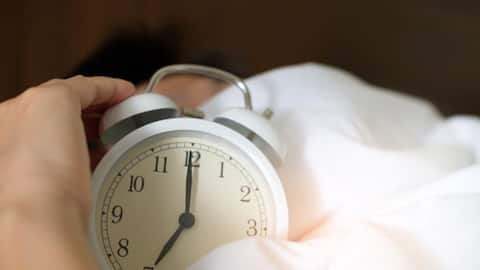Blood tests detect sleep deprivation, finds study
What's the story
Today, sleep deprivation is a widespread concern impacting millions globally, posing significant risks to safety and well-being. From demanding work or academic schedules to lifestyle choices, many sacrifice sleep to fulfill their obligations. However, its effects reach beyond fatigue, with studies showing increased accident risks, impaired cognitive function, and compromised health. Addressing this issue is crucial for promoting individual and public health.
Research
Biomarker study
Developed by researchers at Monash University, Australia, and the University of Birmingham, UK, a groundbreaking blood test, detailed in Science Advances, effectively identifies sleep deprivation. By analyzing biomarkers in the blood of well-rested individuals, the test accurately predicts instances of sleep deficiency among study volunteers with an impressive 99.2% probability, offering promising advancements in addressing this critical issue.
Risk factor
Road accidents
Sleep deprivation presents a significant risk factor accounting for around 20% of global road accidents. The newly developed test shows the potential for promptly and accurately identifying sleep-deprived drivers, potentially averting disastrous accidents. Additionally, its utility extends to safety-sensitive workplaces, where the impacts of sleep deficiency can be equally severe, offering a versatile solution for enhancing safety across various domains.
Disasters
Safety-sensitive industries
Beyond road accidents, the effects of sleep deprivation are evident in safety-sensitive professions, as illustrated by historical disasters like the Chernobyl incident. Objective assessments such as the newly developed biomarker offer potential in reducing risks emerging from fatigue-induced human errors. Implementing such assessments can enhance vigilance, decision-making and overall safety, ultimately safeguarding against catastrophic incidents caused by sleep deficiency.
Valuable insights
Analysing biomarkers
Researchers are working to improve the current biomarker to identify shorter durations of sleep deficits. Utilizing biomarkers, healthcare providers can gain valuable insights into the physiological shifts correlated with sleep loss. This can help in early intervention and forming prevention strategies, potentially mitigating the detrimental effects of sleep deficiency on cognitive function, mood regulation, and overall health.
